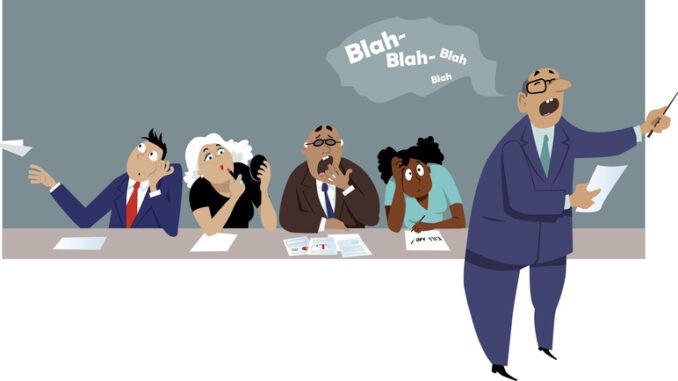In the bustling world of business supplies, the struggle against time-consuming and often fruitless meetings is real, impacting overall workplace efficiency. Brother’s survey of 2,000 UK office workers delves into the issue, shedding light on the problem and offering insights into transforming meeting culture for the better
CREDIT: This is an edited version of an article that originally appeared on Brother
Office workers in the UK find themselves entangled in a web of meetings, potentially compromising the efficiency of their job performance. This article delves into three scientific theories, offering a blueprint for organisations seeking to transform meetings into impactful sessions where meaningful outcomes are achieved within a reasonable timeframe, and every participant’s contribution is acknowledged and valued.
Tuckman’s four stages
Bruce Tuckman’s four stages of group development is a well-accepted theory from the 1960s that provides a good framework to work from.
It asks meeting facilitators to consider the cohesion and familiarity of any group for them to direct accordingly. And while it is a challenge at first to use all of these steps in a 30-minute meeting, it’s achievable with practice.
Here they are:
- Forming: This is the stage where the group meets. Attendees are typically polite but guarded. The role for a facilitator is to help the team understand their roles and responsibilities, while establishing a sense of purpose and common goal for the meeting, to help take them to the next stage.
- Storming: This is where roles and relationships are developed. Leadership and structural issues often dominate this stage, which can be a powder keg for conflict. Facilitators need to be direct, alert, keep teams on track and resolve any problematic conflicts that emerge within the group.
- Norming: After power struggles comes cohesion, familiarity and trust. In a group project exercise, for example, it’s where plans, timelines and responsibilities are agreed. Facilitators should flex from having a directive role to more of a supporting presence, as the group takes on more autonomy. But facilitators can’t let their guard down to new conflict.
- Performing: Here, the team achieves strong, productive collaboration. They’re comfortable in their goals, roles and responsibilities while motivated to get things done competently. Facilitators need to empower the team by celebrating contributions and achievements.
The mere urgency effect
There’s a big difference between tasks that are urgent and those that are important.
We all know that the jobs on our to-do list that are the most time-sensitive are not always the same jobs that will deliver the highest rewards or move us most effectively towards our goals.
Unfortunately, studies of human behaviour show that we are not very good at prioritising tasks that are truly important over those that are merely urgent.
Let’s say, for example, you have set a day aside to complete a key task that will take a lot of focused time. When the day arrives, it can be difficult to avoid spending time responding to requests because of the apparent urgency of responding.
Having a diary full of meetings only exacerbates this effect, as there is a strong temptation to prioritise your list of tasks based on which meeting you will be participating in soonest, rather than which is genuinely more important or higher-reward.
Setting boundaries for meetings, time management techniques and delegation are each important to manage the balance of meeting and preparing for meetings against the focus time needed to fulfil priorities.
Parkinson’s Law
This all-too-familiar ‘law’ was, actually first identified and described by a historian, Cyril Northcote Parkinson, in 1957.
It will be familiar to anybody that has found themselves working on a task they had a month to complete the night before the deadline.
When they’re poorly managed, meetings can be a major culprit when it comes to filling up the available working time.
In our survey, we found that 81% of respondents said most of the meetings they attend could be shorter. And more than half (59%) said that people waffling and unproductive meeting conversation, was the chief culprit for time wasting.
It’s important to maintain the mindset that meetings happen in order to accomplish tasks, not to fill up allotted slots in the diary.
The insight here is get to the point and finish the meeting when you’ve done what you set out to accomplish. Next time you’re facilitating a meeting, it can also be helpful to let attendees know there’s no expectation to stay after their contribution has been made, or the group task has been achieved.
Embracing the three identified priorities—ensuring proper facilitation, implementing stringent attendee selection and improved boundary setting, and promoting efficiency in meeting discussions—can significantly alleviate the negative impact on employees and alleviate time pressure, ultimately contributing to more effective and focused work environments.
Read the full Brother full report here.



Be the first to comment